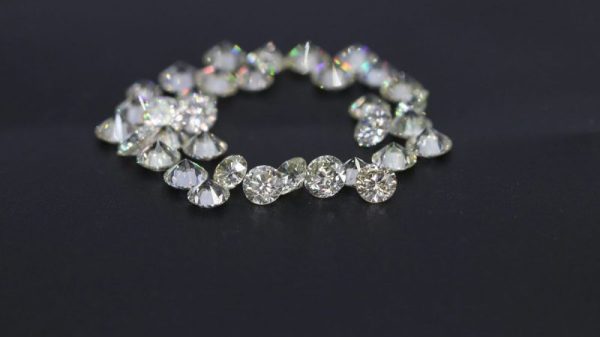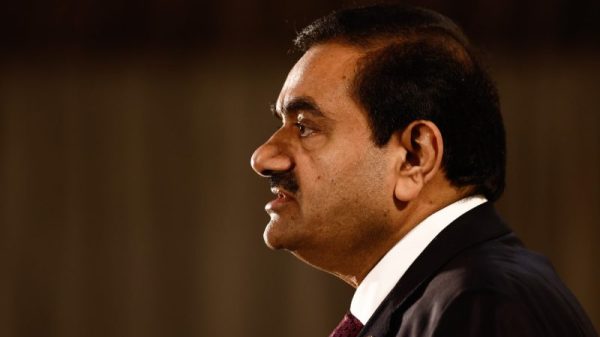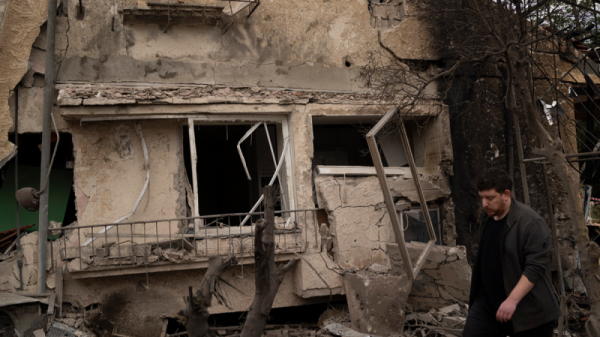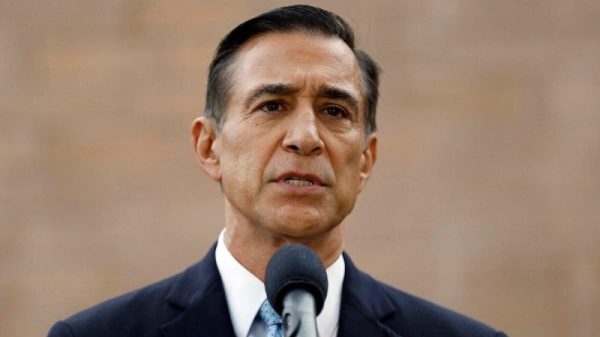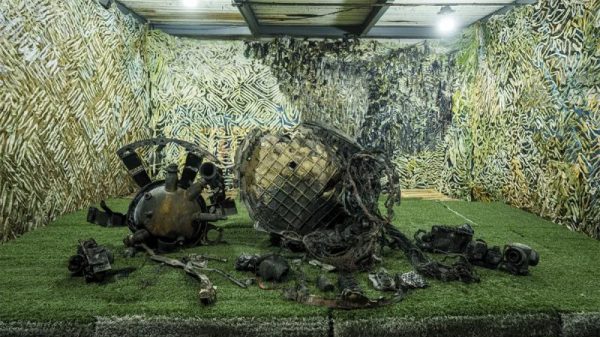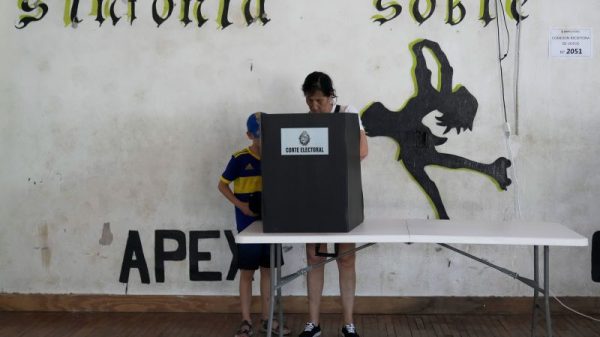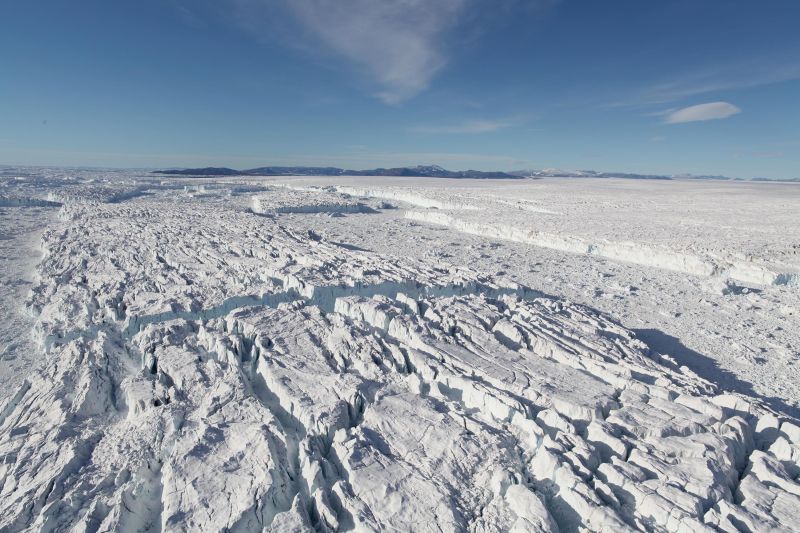At the top of the world, northern Greenland’s huge glaciers — long thought to be relatively stable — are in trouble, a new study shows.
As the ocean warms, Greenland’s last remaining ice shelves are rapidly weakening, destabilizing the nearby glaciers and threatening potentially “dramatic” consequences for sea level rise, according to the study published Tuesday in Nature Communications.
Ice shelves are tongues of floating ice that jut out over the ocean and act as dams that hold back glaciers on land and slow ice loss. When they melt and weaken, more of the land-based ice is able to slide into the ocean, adding to sea level rise.
Scientists analyzed eight ice shelves buttressing glaciers in northern Greenland, which together hold enough ice to raise sea levels by 2.1 meters — nearly 7 feet — should they break down and melt completely.
While glaciers in other parts of Greenland started to lose mass in the 1980s and 1990s, he said, so far, those in northern Greenland “have remained relatively stable.”
But this appears to no longer be the case, according to the study.
Millan and his co-authors used thousands of satellite images, along with climate models and measurements from the field, to better understand the drivers for — and timing of — historical and current changes to the ice shelves.
They found a “substantial and widespread” increase in ice shelf losses. Since 1978, the ice shelves supporting northern Greenland’s glaciers have lost more than 35% of their total volume, according to the study. It found that since the early 2000s, three have collapsed completely, and the remaining five are melting and destabilizing nearby glaciers.
“We can see that the ice shelves are weakening,” Millan said, “and that’s new key information that we didn’t know, because we thought that this part of Greenland was really stable.”
The ice loss came from a mixture of factors, the study found, including increased calving — chunks of ice breaking off to form icebergs — and surface melting.
But the predominant driver was basal melting, where warm ocean currents melt the ice from beneath. Between 2000 and 2020, a “widespread increase” in the rate of basal melting closely followed a rise in ocean temperature, the study found.
The scientists noted a direct impact on glaciers. As the ice shelves melt, the “grounding lines” — the point at which the glacier stops touching the ground and starts to float — are retreating, the study found.
“These natural boundaries are really the key parameter that indicates the glacier stability,” Millan said. As the grounding line retreats, he added, “the ice discharge into the ocean also starts to increase.”
If the oceans continue to warm, it could permanently weaken the ice shelves, Millan said. “And in a certain timescale, they could even collapse, which could have significant consequences on the contribution of the Greenland ice sheet to sea level rise.”
The region already plays a large role. Between 2006 and 2018, the melting of Greenland’s ice sheet contributed to more than 17% of observed sea level rise, according to the report.
It is not possible to give timescales for when such a collapse could happen, Millan said, but changes have happened fast since the early 2000s.
After the collapse of the Zachariæ Isstrøm glacier’s ice shelf in 2003, the ice discharge into the ocean doubled, according to the study. Millan said when he visited the glacier in 2016 and 2017, the changes were alarming. He described it as “a chaos of tabular icebergs.”
The future of the glaciers will depend heavily on what the world does to reduce planet-heating pollution, Millan said.
The report calls for continued monitoring to better asses how the ice shelves will respond to climate change and, in particular, to build on the study’s findings about the complex process of basal melting and the potential impacts on sea level rise.
“This will ultimately provide insight into the future of these glaciers as well as the fate of larger ice shelves in Antarctica,” the report notes. A recent study in Antarctica found that the rapid melting of the continent’s ice shelves may now be “unavoidable” due to melting from below.
Sophie Nowicki, an ice sheet expert in the geology department at the University at Buffalo, who was not involved in the research, said the study’s findings are significant because of the insight they provide into sources and triggers of changes to Greenland’s ice sheet.
The study also adds to an overall understanding of how polar regions are responding to the human-induced climate crisis, Nowicki said.
The poles were once seen as “fairly boring,” she said, but since scientists began to observe them with satellites around four decades ago, it has become clear that “these are dynamic, very fragile regions.”
As the planet continues to heat up, she added, “we should be concerned by how fast the changes are happening, but we should not be surprised.”

